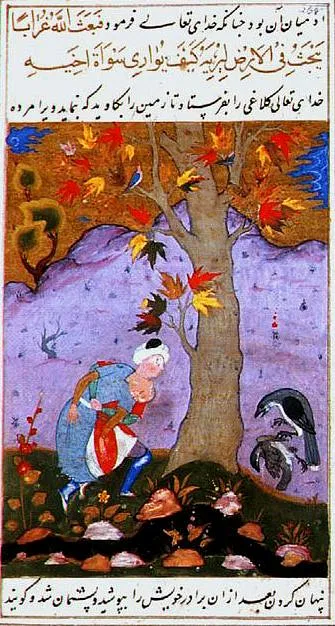The story of Cain and Abel in the narrative literature of Mesopotamia

=======================
There are three Sumerian stories that are similar to the story of Abel and Cain known to us today. The story of Abel and Cain talks about the conflict between the farmer and the shepherd and the role of the gods in ruling between them. Among these Sumerian stories are:
1- The story of Emesh and Enten: This story begins with the god Enlil, who wishes to flood the earth with greenery, crops, trees, and animal husbandry. For this purpose, he appoints two brothers, namely (Emesh), the shepherd, and (Enten), the farmer. The first multiplies the livestock and produces milk, ghee, and eggs, while the second They spread the farms on the ground, grow the grains, and take care of the trees, but a quarrel occurs between them, and they enter into many quarrels and debates, which end with Emish the shepherd challenging his brother, Enlil, the farmer, and they go to the god Enlil to find out who is his favourite. They go to the city of Nippur and each of them presents his case to Enlil, where The god Enlil frankly declares that he prefers the farmer, but the two brothers coexist without a problem and the dispute between them ends, because the god Enlil has made his decision, and his decision is irrevocable.

2- The story of Lahar and Ishnan: The Sumerian god created the god Lihar and his sister, the goddess Ishnan, to provide them with food and clothing, but the gods did not benefit from their service until after they created man, so they were sent to humans to teach them agriculture, animal husbandry, writing, the arts, fire, etc., so Lahar’s tasks were to multiply Livestock and their products on the land, while Eshnan increased the yields of the land and its products, but a problem arose between them about which of them was better, and so they appealed to the gods, so the god Enlil and the god Enki-Lashnan ruled the farm with victory and superiority.

3- The story of Enkemdu-Dumuzi: Inanna (Ishtar) was looking for a husband, and Dumuzi the shepherd (Tammuz) and Enkemdu the farmer proposed to her. As an initial position, she preferred the farmer Enkemdu, not because her brother, the god Utu (the sun god), urged her to marry Dumuzi the shepherd and asked. Including his preference over the farmer (Enkemdu), and after both parties present their virtues to the goddess Inanna, she prefers Dumuzi the shepherd over the farmer and takes him as her husband. However, this victory for Dumuzi the shepherd is only the beginning of the disaster for Dumuzi, whom Inanna later sent to the world. Below to replace her, as happened in the story of Inanna's descent into the underworld.
Source: The book The First Adventure of the Mind by Firas Al-Sawah

